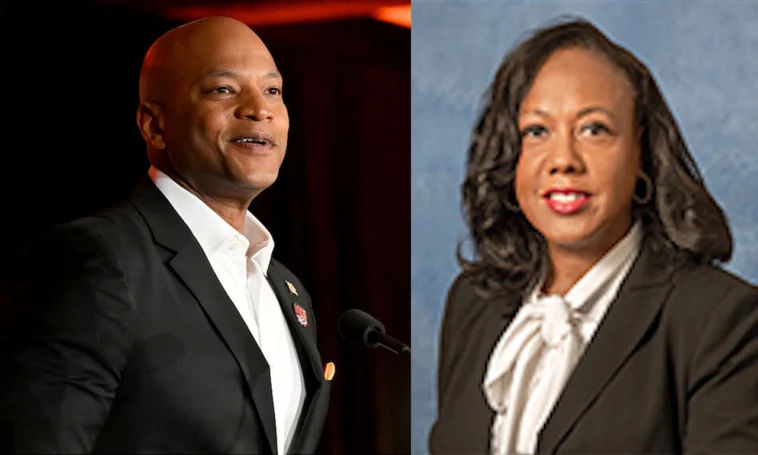Maryland’s Democratic Governor Appoints DEI Consultant. In the wake of the recent container ship crash into Baltimore’s Francis Scott Key Bridge, the spotlight has intensified on the qualifications and expertise of Karenthia Barber, a diversity, equity, and inclusion (DEI) consultant appointed to the Maryland Port Commission by Governor Wes Moore.
The collision has not only brought into question the necessity of diverse perspectives on such commissions but also raised concerns about the requisite maritime experience in ensuring the safety and efficiency of port operations.
Barber’s appointment last August was met with both praise and skepticism. Heralded as the “first black woman to serve as Maryland Port Commissioner,” her background in DEI consulting and leadership training initially seemed to align with Governor Moore’s vision of broadening the impact and inclusivity of the Maryland Port Administration (MPA).
However, as the aftermath of the collision unfolds, doubts have arisen regarding whether her expertise adequately prepares her for the complex challenges facing the port and the broader maritime industry.
“In the words of our Governor, I want to make sure the MPA is leaving no one behind — that we are broadening our impact, our revenue, but also expanding the net of inclusion,” Barber said.
While Barber’s professional background includes founding and leading a consulting practice focused on leadership development, workforce training, and diversity initiatives, her direct experience in the maritime sector appears limited.
Despite her role as a motivational speaker and her involvement in various political and community organizations, there is scant evidence of substantive maritime experience in her portfolio. This raises questions about her preparedness to address the intricate technical, logistical, and safety considerations inherent in managing a major port.
The composition of the Maryland Port Commission further complicates the debate. While Barber’s appointment by Governor Moore highlights a commitment to diversity and representation, critics argue that expertise in maritime operations and management should take precedence in such appointments.
The contrast between Barber’s background in DEI consulting and the experience of other commissioners appointed by past Republican governors underscores this point. Commissioners such as Edward McDonald, David Richardson, and Brenda Dandy bring extensive experience in managing transportation hubs and maritime ventures, offering a blend of expertise that complements the diverse needs of the commission.
The collision at the Francis Scott Key Bridge has underscored the critical importance of effective governance and decision-making within the Maryland Port Commission. As authorities grapple with the aftermath of the crash, including the cleanup of the port and the construction of a new bridge, the role of commissioners in shaping policies and strategies for enhancing port safety and efficiency has come under scrutiny.
While diversity of perspectives is undoubtedly valuable in fostering innovation and inclusivity, the collision has reignited debates about the balance between diversity and expertise in governance structures overseeing vital infrastructure.
Critics of Barber’s appointment argue that while diversity and inclusion are laudable goals, they should not come at the expense of requisite expertise and qualifications. The maritime industry is highly specialized, requiring a deep understanding of complex logistics, safety protocols, and regulatory frameworks. Without sufficient expertise in these areas, commissioners risk being ill-equipped to address the multifaceted challenges facing the port and the broader maritime sector.






2 Comments
Leave a Reply2 Pings & Trackbacks
Pingback:Charlamagne tha God slams workplace DEI initiatives: 'Mostly worthless' - Hard Knock News
Pingback:Maryland Democratic Senate Candidate Supports Unlimited Abortion Rights - Hard Knock News
Join the Community and Be a Part of the Conversation
You must be logged in or registered to post a comment.